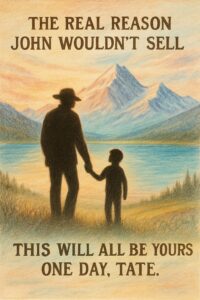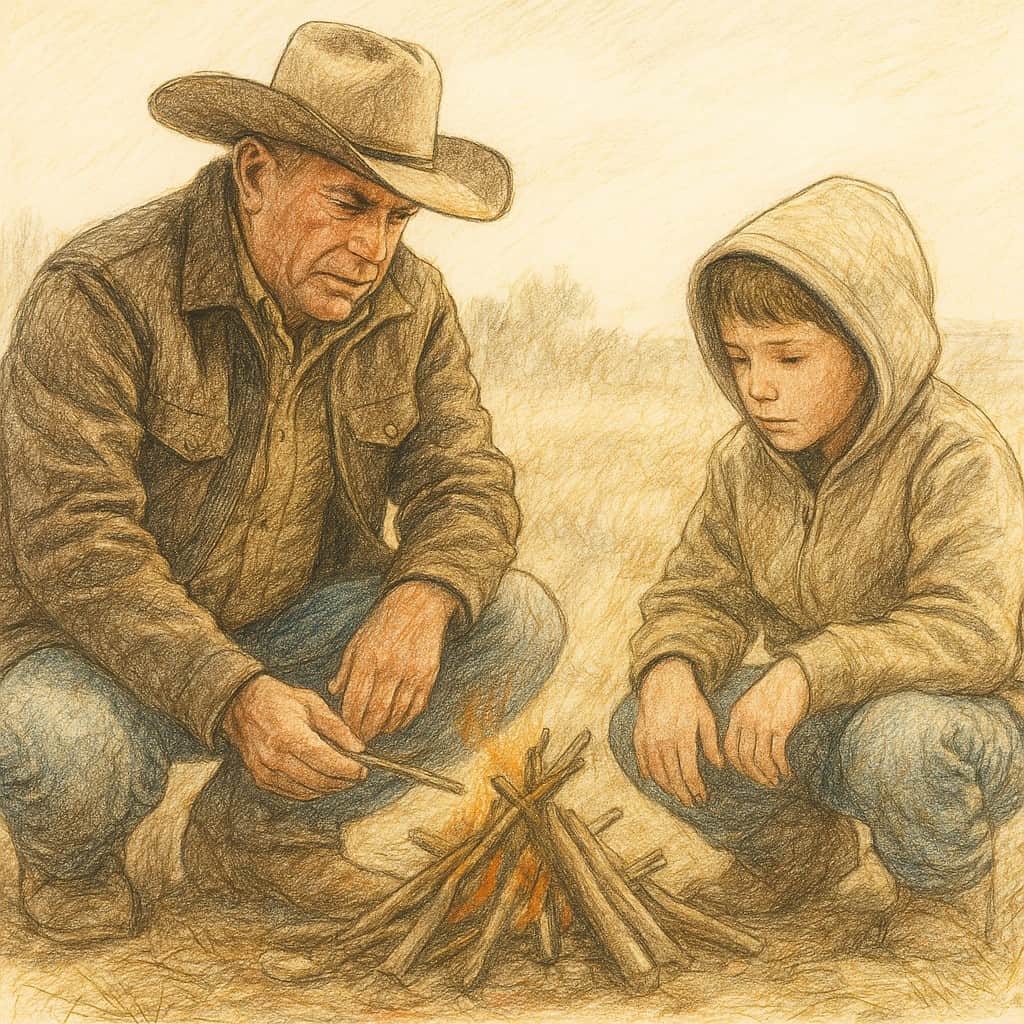John Dutton – Legacy, Land, and the Weight of Power
No lie, a character portrait of John Dutton is an intimidating undertaking. John Dutton isn’t just the patriarch of the Yellowstone ranch—he is its living embodiment. Played with quiet intensity by Kevin Costner, John is equal parts king, farmer, judge, and executioner. Every moment he’s on screen is laced with consequence. He doesn’t yell. He doesn’t rush. But when he speaks, things happen.
In this character analysis, we’ll look at what truly defines John Dutton: his legacy, his moral contradictions, his political plays, and the emotional toll of protecting something that can never love him back.
The Man, the Ranch, the Mission
To understand John, you have to understand the Yellowstone ranch. It’s not just land—it’s bloodline, duty, and destiny. And John treats it like it’s holy. From the first season, his central motivation is simple:
“This ranch has been in my family for six generations. I’m not gonna be the one to lose it.”
But unlike Rip’s loyalty or Beth’s rage, John’s motivation is deeply ideological. He sees the ranch as a last stand against modernity, greed, and government overreach. Every action he takes—whether noble or vicious—serves that mission.
Fatherhood as a Battlefield
John Dutton is a father, but he is not nurturing. He divides his children into tools and threats. Beth is his hammer, Kayce is his heart, Jamie is his failure, and Lee was his balance—until his death shattered the fragile order.
His treatment of Jamie is particularly revealing. While he’s cold to all his children at times, with Jamie, there’s a deliberate cruelty—rooted in betrayal, adoption, and legacy. John doesn’t see Jamie as a son. He sees him as a cautionary tale.
He loves Beth—but demands her violence. He loves Kayce—but drags him into power plays that break his spirit. John is not a father in the traditional sense. He is a guardian of the family line, and that line is everything.
The Political Turn
In later seasons, John enters the world of politics—not for power, but to protect what he already owns. Becoming governor isn’t a victory for him; it’s a burden. He loathes bureaucracy. He despises compromise. But he sees politics the way he sees everything else: a tool.
His decision to fire his own staff and replace them with ranch loyalists is telling. John doesn’t want to govern the state. He wants to protect the ranch from the state. Every speech he gives, every executive order he signs, is a move to slow down the march of development and preserve his world just a little longer.
Moral Lines and Quiet Violence
John isn’t a good man—but he believes he is. And that distinction matters. He makes deals with criminals. He looks the other way when Rip buries bodies. He makes decisions that destroy lives. But to John, all of it is justified in defense of the land.
“You can’t reason with evil, son. Evil wants a fight. And it’s gonna get one.”
That quote defines John’s worldview. There’s us, and there’s them. There’s the land, and there’s everyone trying to take it. Once someone is the enemy, anything is fair game. This binary thinking gives him clarity—but it also makes him dangerous.
Cost of the Throne
Despite his power, John is a deeply lonely man. His wife is dead. His children are either broken or estranged. He often rides alone. He speaks more to animals and land than he does to people. And when he does talk, it’s with a measured heaviness that hints at regret he’ll never admit.
He’s not heartless. He’s just tired. And the more he sacrifices to keep the ranch intact, the more hollow his victories become. But this wouldn’t be anything like a character portrait of John Dutton if it didn’t the tiny tot who gave John a hard left turn in life: Tate. The victories became hollow, the price of the fight higher than the value of the prize. Then John took a trip to the woods with Tate.
You could see the transformation in him as he found something either for the first time or the first time in decades: uncomplicated, overwhelmingly powerful love. This put more steel in John’s spine. It made him even more vicious, but also more relatable. It’s for Tate. This isn’t a promo for our T-Shirt and Merch site (that’s why there’s no link), but it’s hard to talk about this without showing off this design.

Is John Dutton the Villain?
That question defines much of the show’s tension. From one angle, he’s the noble defender of heritage. From another, he’s a land baron willing to commit crimes to keep what was taken by force generations ago. He kills, manipulates, and threatens. He bends the law constantly. Yet we root for him.
Why? Because Yellowstone isn’t about right and wrong—it’s about survival in a world that punishes softness. John Dutton doesn’t bend. He breaks whatever tries to move him.
A Phrase Only Found in a John Dutton Character Portrait: Legacy Written in Blood
In the end, John is a relic. And he knows it. Every enemy he defeats is replaced by a younger, smarter threat. The ranch is surrounded. The family is fracturing. The empire he built is always one winter away from collapse.
But he keeps riding. Keeps ruling. Keeps bleeding for land that will never bleed for him back.
And maybe that’s what makes him the true tragic figure of Yellowstone: He wins every fight, but he’s already lost the war.
External Links
Want More?
Spent some time finding out about legendary actor Kevin Costner, the man who kept Whitney Houston safe, danced with wolves before Kayce, and was the adoptive father to Superman before he became John Dutton.
